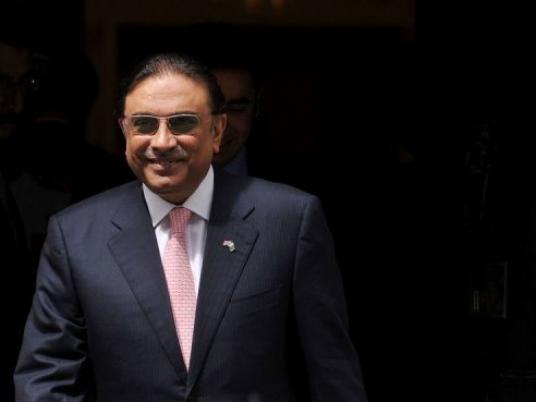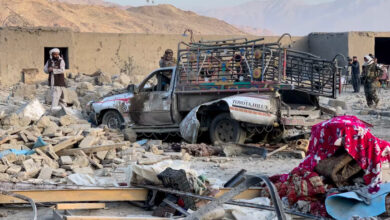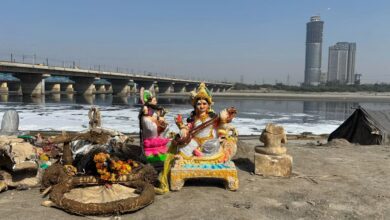
President Asif Ali Zardari became the first Pakistani head of state since 2005 to visit India for a one-day trip aimed at building goodwill between the nuclear-armed rivals.
During a visit billed as "private" but of great diplomatic significance, Zardari on Sunday will have lunch with Indian Prime Minister Manmohan Singh before heading to a Muslim shrine 350 km southwest of New Delhi.
The meeting has received a cautious welcome from analysts who see it as another sign of improving relations between the bitter neighbors, but the issue of Pakistani militant activity against India remains deeply problematic.
India continues to press its neighbor to prosecute the alleged perpetrators of the 2008 Mumbai attacks, blamed on the militant group Lashkar-e-Taiba, which was founded by hardline Islamist Hafiz Saeed.
Saeed lives openly in Pakistan, where the government says it has insufficient evidence to prosecute him, but his terror links were highlighted recently by a US$10-million bounty for his arrest offered by the US.
"My stance on Saeed is not different from my government," Zardari told reporters on Saturday in Lahore ahead of his trip, the first by a Pakistani president since Pervez Musharraf visited seven years ago.
"My visit to India is of a religious nature and I do not think Manmohan Singh will make me sit [and discuss] only this issue," he added.
The meeting between Zardari and Singh over a lunch including kebabs and curries from all over India, including the disputed region of Kashmir, is seen as a positive step to improve fragile ties which are riven with mistrust.
Analysts say little progress can be expected on sensitive topics such as Kashmir, which is divided but claimed in full by both countries, or the presence of anti-India militant groups in Pakistan.
"Their meeting on Sunday, in Zardari's first visit as president to India, doesn't in itself inspire any great hope," said the Mail Today, an Indian tabloid, on Sunday.
Other reports said one outcome would be an invitation to Singh to visit Islamabad by the end of the year, as well as progress in increasing trade, which is seen as a win-win area both sides can engage with.
India broke off a slow-moving peace process to settle all outstanding problems with Pakistan after the 2008 Mumbai attacks, which left 166 people dead, but the two sides have since returned to the table.
Accompanied by a large delegation that included his son and Interior Minister Rehman Malik, Zardari stepped off the plane in the capital New Delhi at shortly after midday and headed to meet Singh at his residence.
Later Zardari will fly south to a Sufi shrine in the town of Ajmer, a renowned complex of mosques built around a tomb commemorating a saint called Moinudin Chrisht, who died in 1236.
Sufism, a mystical and moderate branch of the religion popular in South Asia, has come under attack from hardline extremists in Pakistan who have launched attacks against worshippers and their shrines in recent years.
"This is a largely symbolic occasion and contentious subjects will be avoided," said Brahma Chellaney, an analyst at New Delhi's Centre for Policy Research, of the meeting between the leaders.
Pakistan's foreign policy is seen by many observers as the preserve of the powerful military, and Chellaney suggested Zardari wielded little real power.
"You can't have substantive talks with someone who doesn't run anything," he said.
Back in Pakistan, the government was dealing Sunday with the aftermath of a huge avalanche the day before which smashed into an army camp, burying up to 135 people, mostly soldiers, on the de facto border with India.
Pakistani troops were frantically trying to find signs of life in an area near the Siachen glacier, an inhospitable ice field that became the site of fierce fighting between Pakistan and India in 1987.
India and Pakistan have fought three wars since independence from British rule in 1947 and also carried out tit-for-tat nuclear tests in 1998.
The two countries came to the brink of conflict most recently in 2001, and tensions again peaked after the Mumbai attacks.
Trade is one area of discussion that the two leaders may find fruitful as Pakistan moves to normalize trade ties by phasing out major restrictions on Indian imports by the end of the year.
In 1996, India granted Pakistan "most preferred nation" trading status, while Pakistan last year agreed in principle to match the move.




